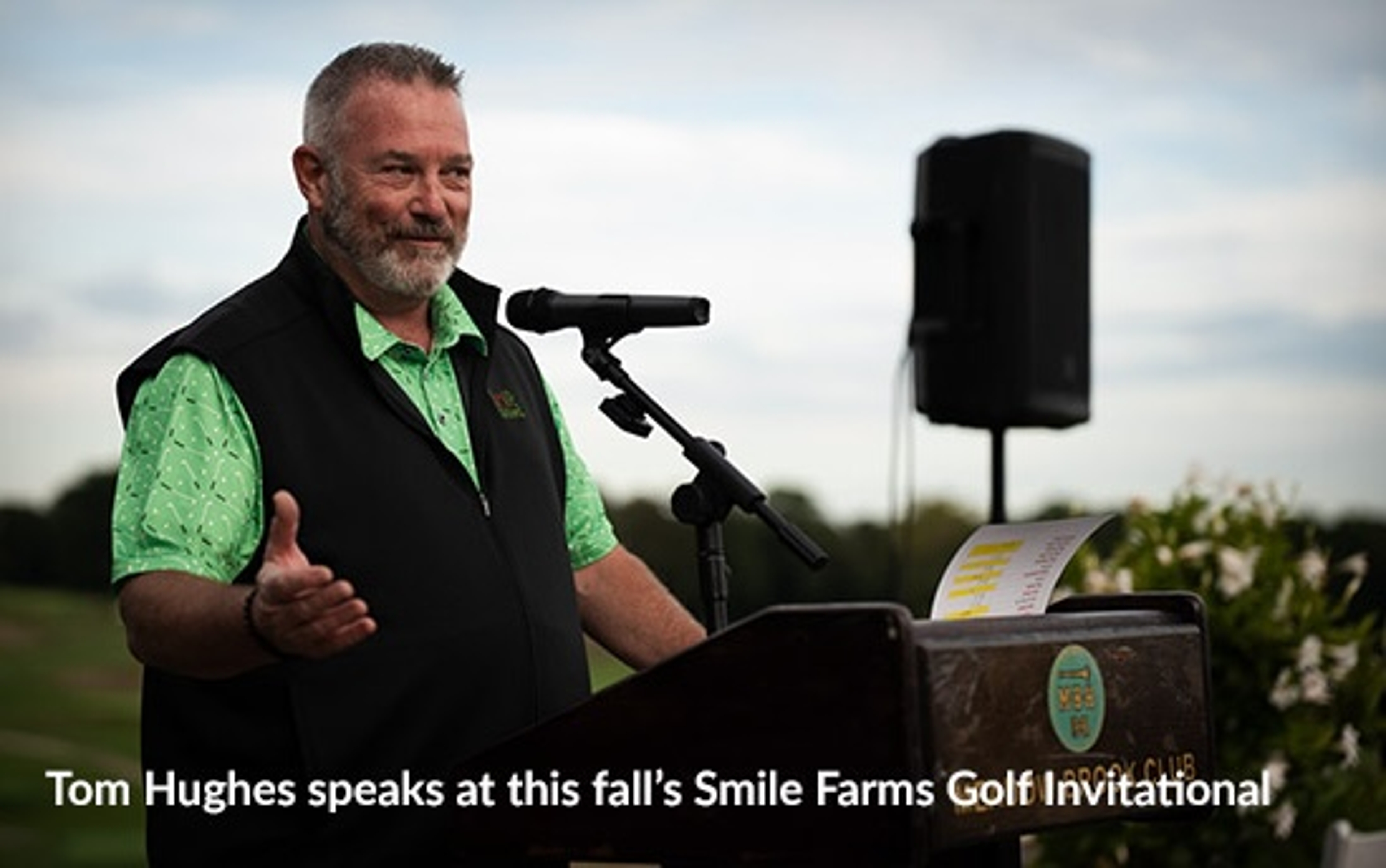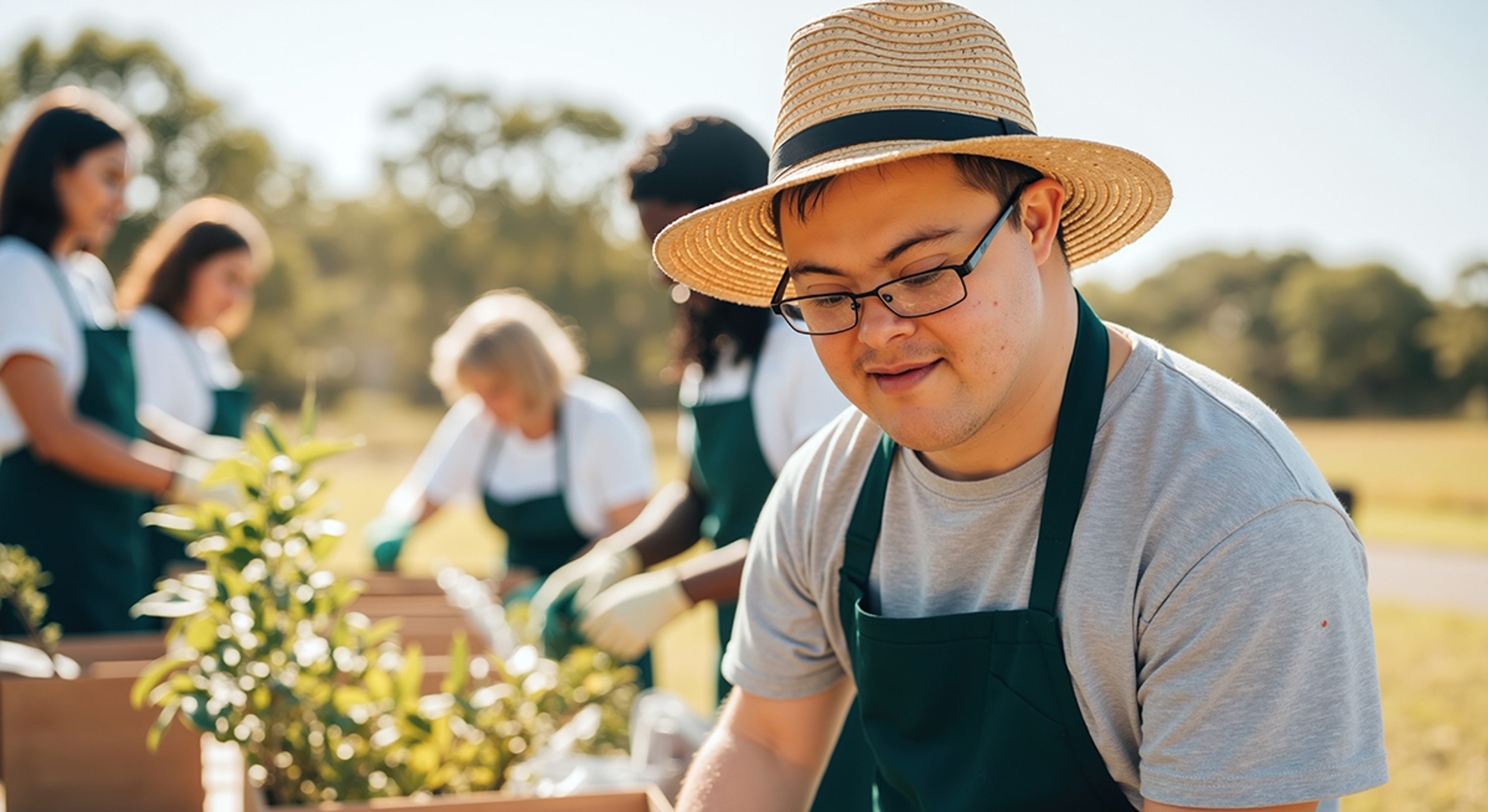From Awareness to Action: Let's Build a Workforce That Welcomes Everyone
Millions of people with disabilities face barriers to employment. Smile Farms is changing that by creating meaningful job opportunities and inspiring a more inclusive future.
Oct 05, 2025
Written by our Founder and Chairman, the Celebrations Pulse letters aim to engage with our community. By welcoming your ideas and sharing your stories, we want to help you strengthen your relationships with the most important people in your life.
Work is one of the great connectors in life. It gives us a reason to get out of bed, a team to belong to, and a story to tell at the end of the day. Of course, a paycheck matters, but the real magic of work is the sense of purpose it brings, and with whom we do it.
Yet, for millions of Americans who live with a disability, finding employment is a challenge. They struggle due to a lack of training, employer biases, and a world that too often overlooks their potential. Instead of being invited in, they’re left behind the door of opportunity that they’ve been knocking on for years.
When that happens, we all lose out, because we miss the chance to welcome talented, dedicated people who want nothing more than to contribute and belong.
That’s why both awareness — and action — matter. October is National Disability Employment Awareness Month, a time to spotlight the barriers people with disabilities face in the workforce. It’s also a moment to ask ourselves: Are we doing enough to create opportunities?

Lessons from my brother
I know of these challenges from personal experience. My brother Kevin, who was born with a developmental disability, has been one of my greatest teachers. Growing up with him, I saw not only his challenges but also his kindness and his capacity for love.
My parents weren’t wealthy, but they did everything they could to support Kevin. They even rented out small spaces and invited other families with children who had disabilities, creating a judgment-free environment where kids could connect and parents could share their experiences.
One question always dominated the parents’ conversations: What’s going to happen when the children grow up? At the time, legal protections like the Americans with Disabilities Act were still decades away, and the path ahead felt uncertain.
As Kevin entered adulthood, it was clear he had the personality to thrive in a workplace and the desire to contribute. What he lacked were the chances to prove what he could do.
Employment opportunities for people with disabilities have improved in recent years, but the gap compared with the rest of the workforce remains wide. Among people with intellectual and developmental disabilities, only about 17% have a paid job. Among those who don’t, nearly half want one. And when people do find work, it’s typically fewer than 15 hours a week.
The roots of Smile Farms
Those numbers are what inspired us to create Smile Farms, which is celebrating its 10th anniversary this year. Founded by my family, it’s a nonprofit dedicated to helping people with disabilities build skills, grow fresh produce, and find meaningful work.
The spark came from a phone call back in 2015. Walter Stockton of Independent Group Home Living (IGHL), where my brother Kevin lives, reached out with an idea. During that conversation, we began to imagine a program focused on developing real-world skills for people with developmental differences.
That conversation led to the creation of Smile Farms on a commercial parcel in Moriches, New York, that had been purchased specifically to build greenhouses and launch the program. Today, it’s the program’s flagship campus, where over 80 Smile Farmers grow annuals, perennials, and herbs in 19 greenhouses. Plants are sold in an on-site retail store and wholesale to local businesses.
Since then, Smile Farms has expanded to 14 campuses and grown well beyond agriculture. It’s ventured into hospitality, thanks to a partnership with Chef Tom Colicchio’s Crafted Hospitality. Smile Farms’ leaders have also launched initiatives like “Smile Shippers,” where employees fulfill product orders, and “Heat With Heart,” a hot sauce whose sales help fund the program. It’s also partnered with hospitals and nonprofits.
If you find yourself on Long Island between now and Oct. 15, I hope you’ll stop by RUMBA in Patchogue for something truly special. They’re serving a Smile Farms Spaghetti Squash entrée, which was created in partnership with our friend David Hersh and his team at Rooted Hospitality Group. The squash comes straight from our Smile Farms campus in Center Moriches, where our farmers grow it with pride through IGHL’s East End Day Habilitation program.
A widening circle of caring
What’s surprised me the most over the last decade is the widening circle of caring that surrounds Smile Farms and the farmers.
Volunteers, including many from 1-800-Flowers.com, show up in force for every golf outing, Growing Together Gala, farm stand, and other events. Restaurants discover not just the produce but the talents of Smile Farmers. And donors return year after year to sustain the growing number of programs.
Along the way, relationships blossom. I recently caught up with Tom Hughes, a longtime supporter of Smile Farms. We started by talking about events and partnerships, but soon were swapping stories about how cruise ships have become surprisingly accessible to people in wheelchairs.

That’s the ripple effect of awareness: Once you see what’s possible in one place, you begin to look for it — and advocate for it — everywhere.
What you can do
I share the story of Smile Farms as proof of what’s possible when each of us leans in. The challenge of finding meaningful employment among people with disabilities won’t be solved by one program or one policy but by many small actions that add up to big changes.
Employers can start by carving out roles that meet real needs, from inventory and order prep to hospitality and office support. With clear expectations and a supportive job coach, employees can thrive and show just how much they bring to the table. Coworkers and neighbors can take that further by welcoming everyone.
The ripple effect is powerful. Businesses grow stronger, employees gain pride and purpose, and communities become more connected. Every barrier lowered and success celebrated moves us closer to a future where everyone has a chance to contribute.
All the best,
Jim







